Bochum-Belgrade Philosophy of Mind Workshop (online)


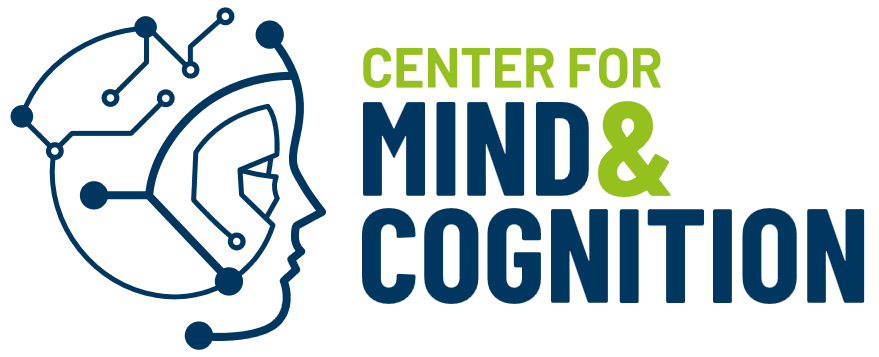

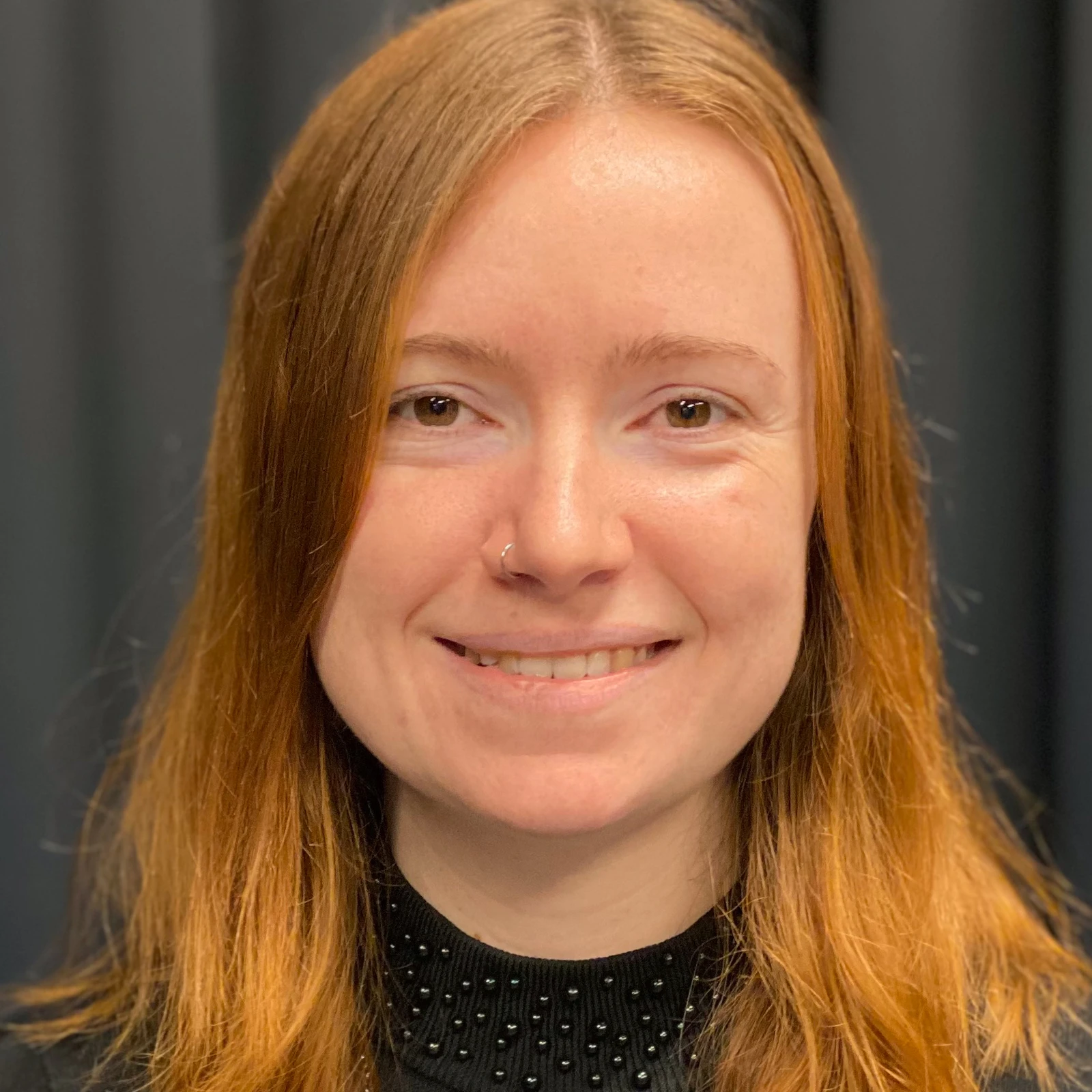
Katie Winkle, PhD [Host: Prof. Dr. Tobias Schlicht] Time: November 2023
Katie Winkle is Assistant Professor of Social Robotics in the Department of Information Technology at Uppsala University. The work of her team is focused on trustworthy human-robot interaction. She completed her PhD at the FARSCOPE centre for doctoral training at the Bristol Robotics Laboratory. The thesis has the title “Expert-Informed Design and Automation of Persuasive, Socially Assistive Robots”. Two representative articles are:
More information about her and her work: https://kwinkle.github.io
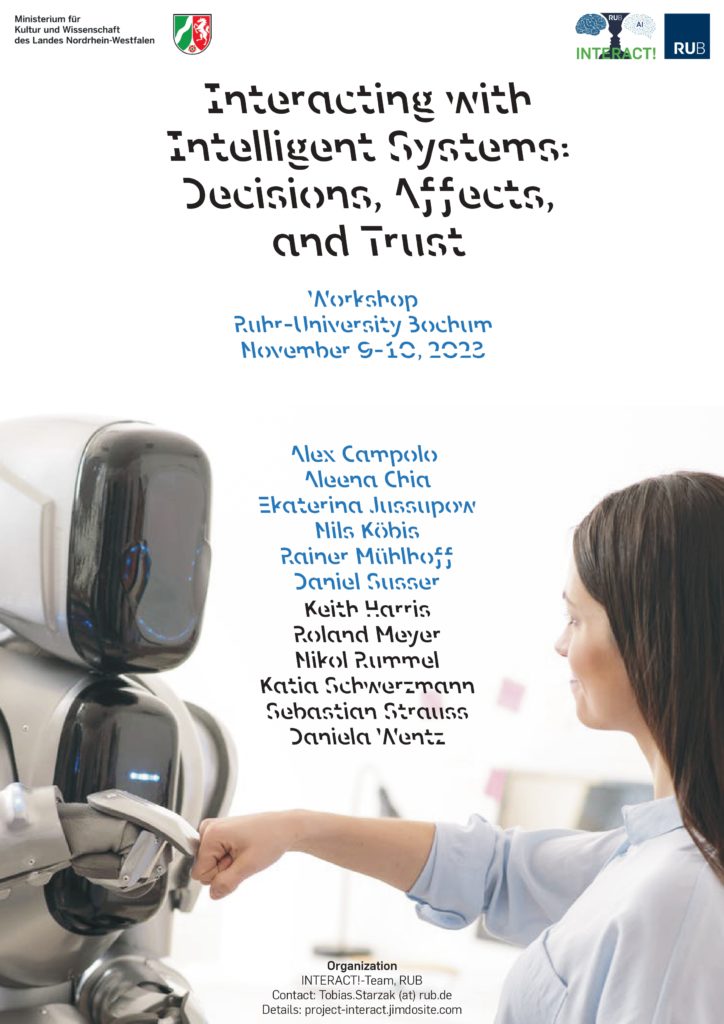
Organized by Prof. Dr. Albert Newen and Dr. Julia Wolf.
Tuesday 14:00-15:30
GA 04/187 (Hybrid)
Zoom-link: Click the talk’s title.
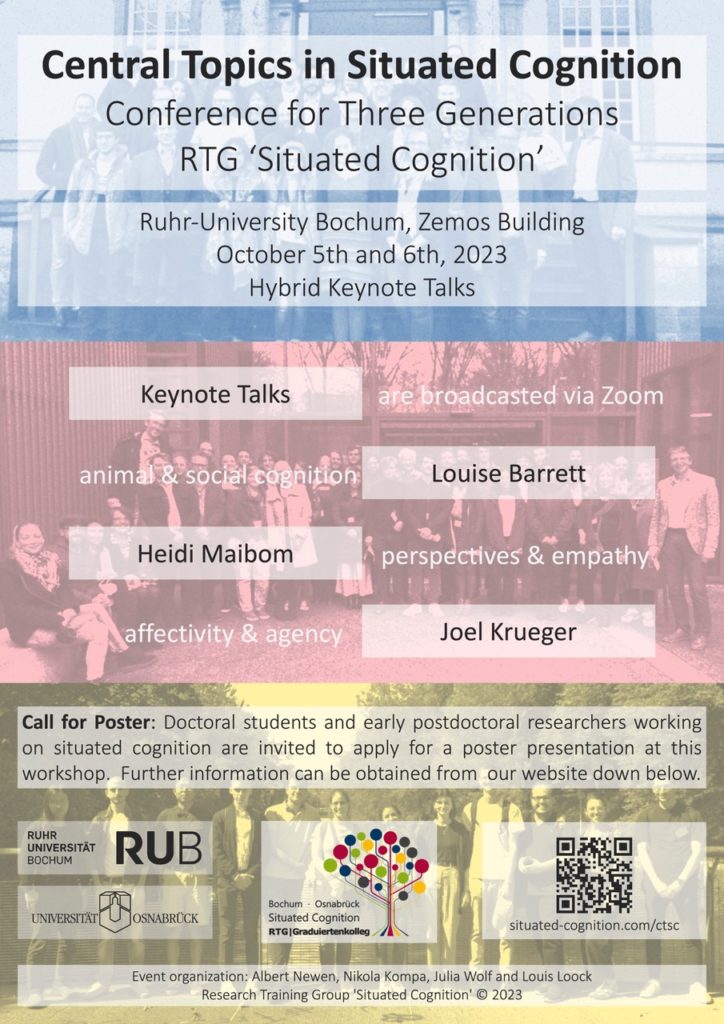
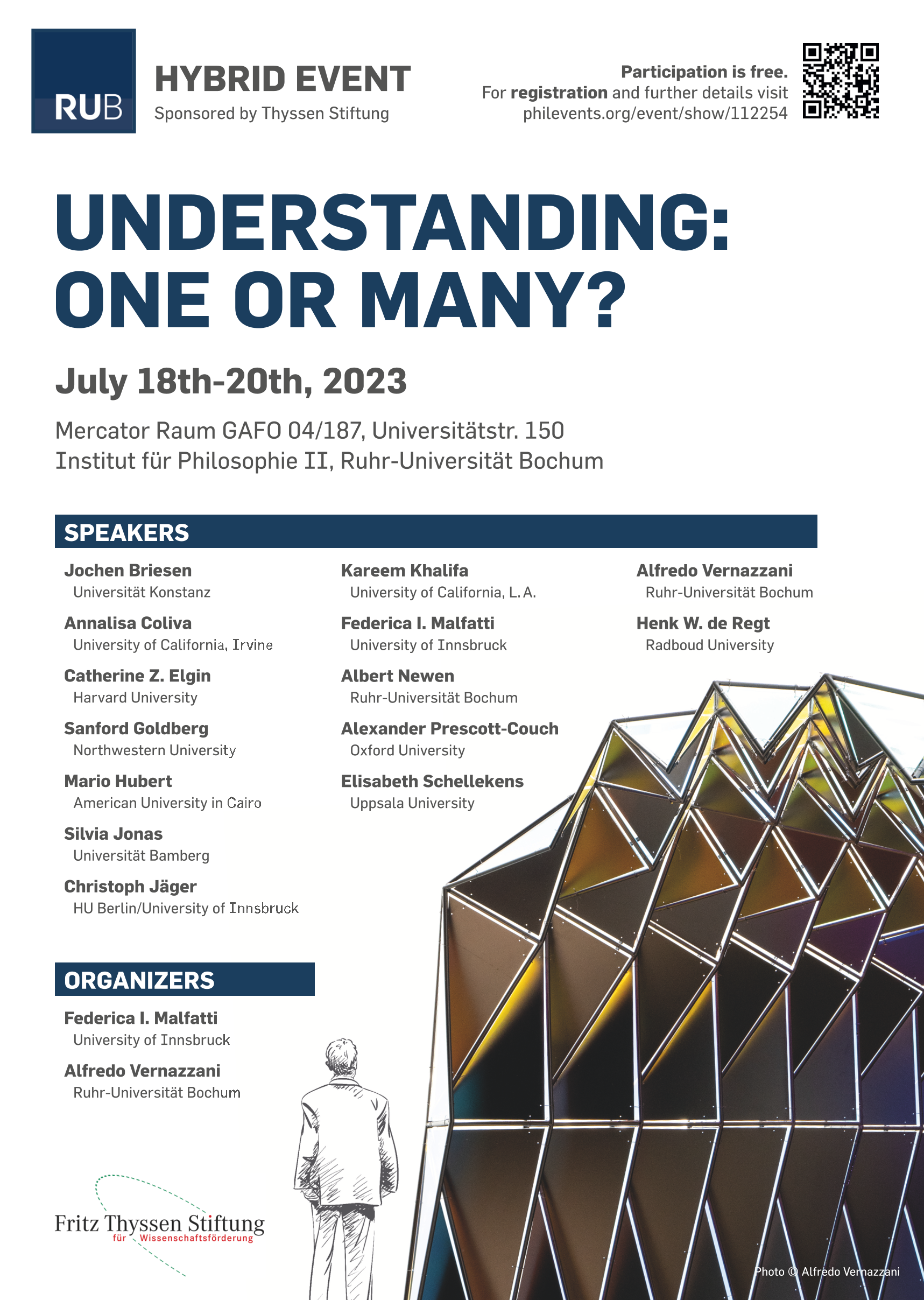
18. – 20.07.2023
Institut für Philosophie II, Ruhr-Universität Bochum
Mercator Raum GAFO 04/187
Description
While understanding has recently become the object of intense debate among philosophers, it remains an open question how to make sense of different forms of understanding. These include scientific understanding (e.g. understanding scientific theories, phenomena, models, etc.), moral understanding (e.g. understanding other people, understanding political subjects, etc.), aesthetic understanding (e.g. understanding an artwork, like a novel or painting, and how these enable us to understand the world), or religious understanding (e.g. understanding theology, understanding and our spiritual life).
The main goal of the conference is to gather some of the most prominent, established researchers in the field of understanding, as well as early career researchers, to debate about the nature of understanding and what connections there may be between scientific, moral, aesthetic, and religious understanding.
Registration
This is a hybrid event, participation online or in person is free, but please register first by sending an e-mail with your name, e-mail address, and preference (online or in-presence participation) to:
alfredo-vernazzani@daad-alumni.de
or
fede.malfatti89@gmail.com
Seats are limited for in-presence participation!
A Zoom link will be sent to all registered participants on July 17.
Program
(All times are CET!)
18.07.2023
8:45 – 9:00 opening
9:00 – 10:15 Catherine Z. Elgin (Harvard): “Epistemic Agency”
10:15 – 11:30 Christoph Jäger (Innsbruck/HU): “Socratic Authority and Understanding”
11:30 – 12:00 Coffee break
12:00 – 13:15 Silvia Jonas (Bamberg): “A Mathematical Perspective on Religious Understanding”
13:15 – 15:00 Lunch break
15:00 – 16:15 Alexander Prescott-Couch (Oxford): “Two Kinds of Political Understanding”
16:15 – 16:45 coffee break
16:45 – 18:00 Sanford Goldberg (Northwestern) & Kareem Khalifa (UCLA): “A Social Epistemology of Scientific Understanding”
19:30 Conference dinner
19.07.2023
8:45 – 9:00 opening
9:00 – 10:15 Annalisa Coliva (Irvine): “Wittgenstein and Morphology” (tentative title)
10:15 – 11:30 Alfredo Vernazzani (RUB): “Seeing-As, Memory, and Perceptual Intelligibility” 11:30 – 12:00 coffee break
12:00 – 13:15 Albert Newen (RUB): “Multiple Types of Social Understanding and their Underlying Dimensions”
13:15 – 15:00 Lunch break
15:00 – 16:15 Elisabeth Schellekens (Uppsala): “Aesthetic Experience and Epistemic Gain: The Case for Intelligible Aesthetic Value”
16:15 – 16:45 Coffee break
16:45 – 18:00 Jochen Briesen (Konstanz/FU): “Response-Dependence, Knowledge, and Understanding”
20.07.2023
8:45 – 9:00 opening
9:00 – 10:15 Mario Hubert (AUC) & Federica Isabella Malfatti (Innsbruck): “Understanding Quantum Mechanics”
10:15 – 10:30 coffee break
10:30 – 11:45 Henk de Regt (Radboud): “The Prospects of Artificial Scientific Understanding”
11:45 – 12:00 Conference ends
Universität Konstanz
University of California, Irvine
Harvard University
Northwestern University
American University in Cairo
Universität Bamberg
University of Innsbruck
University of California, Los Angeles
University of Innsbruck
Ruhr-Universität Bochum
Oxford University
Uppsala University
Ruhr-Universität Bochum
Radboud University
University of Innsbruck
Ruhr-Universität Bochum